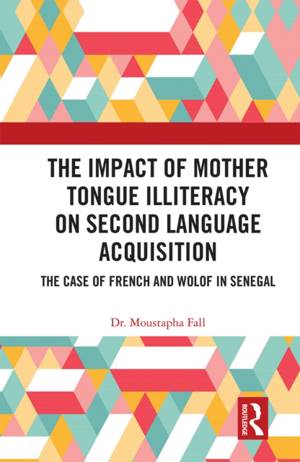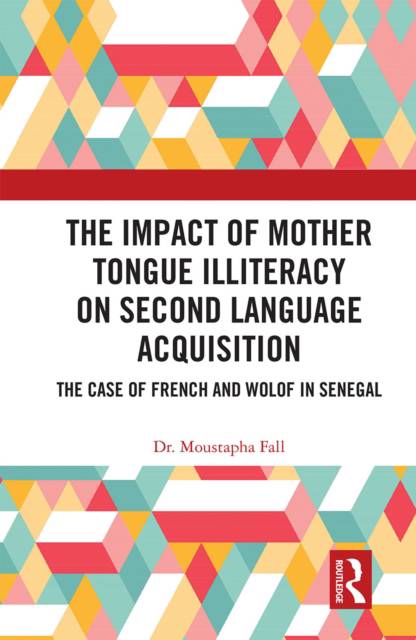
- Afhalen na 1 uur in een winkel met voorraad
- Gratis thuislevering in België vanaf € 30
- Ruim aanbod met 7 miljoen producten
- Afhalen na 1 uur in een winkel met voorraad
- Gratis thuislevering in België vanaf € 30
- Ruim aanbod met 7 miljoen producten
The Impact of Mother Tongue Illiteracy on Second Language Acquisition
The Case of French and Wolof in Senegal
Moustapha FallOmschrijving
This text illustrates the crucial role of the mother tongue literacy in second language acquisition by presenting findings from a comparative study conducted in primary schools in Senegal. In addition, the volume provides an in-depth look at the linguistic history of Senegal before, during, and after French colonialism.
The Impact of Mother Tongue Illiteracy on Second Language Acquisition
discusses the socio-linguistic landscape and ethnolinguistic composition of Senegal and its effect on the second language acquisition. An in-depth analysis of children's phonological awareness, decoding, and reading comprehension in French reveals significant disparities in the literacy skills of Wolof children who have been exposed to Arabic and Qur'anic texts prior to schooling, and those who have not. In doing so, the text explores the impacts of post-colonial language policies in Africa, highlights the pedagogical consequences of mother tongue illiteracy, and questions the use of French as the only language of instruction in Senegalese schools.This detailed research text will of great interest and use to graduate and postgraduate students, researchers, academics, professionals and policy makers in the field of Second Language Acquisition, Multicultural Education, Applied Linguistics, French language education and, Language Policy and Planning.
Specificaties
Betrokkenen
- Auteur(s):
- Uitgeverij:
Inhoud
- Aantal bladzijden:
- 186
- Taal:
- Engels
- Reeks:
Eigenschappen
- Productcode (EAN):
- 9781032238722
- Verschijningsdatum:
- 13/12/2021
- Uitvoering:
- Paperback
- Formaat:
- Trade paperback (VS)
- Afmetingen:
- 152 mm x 229 mm
- Gewicht:
- 258 g

Alleen bij Standaard Boekhandel
Beoordelingen
We publiceren alleen reviews die voldoen aan de voorwaarden voor reviews. Bekijk onze voorwaarden voor reviews.











